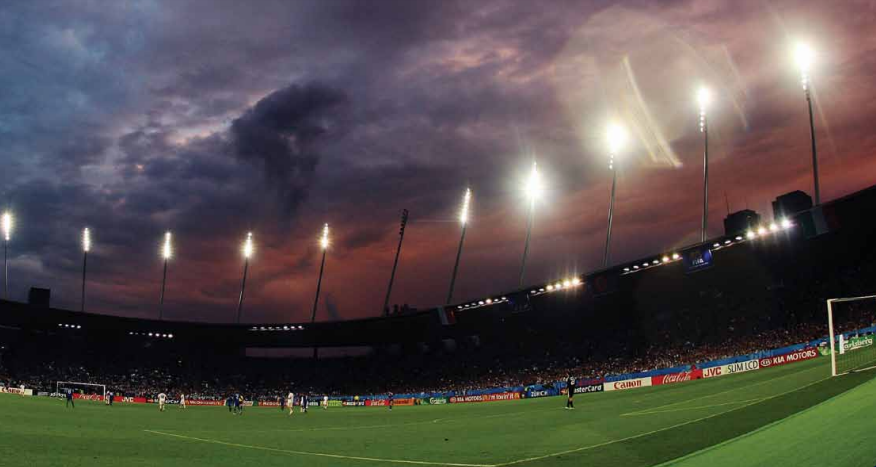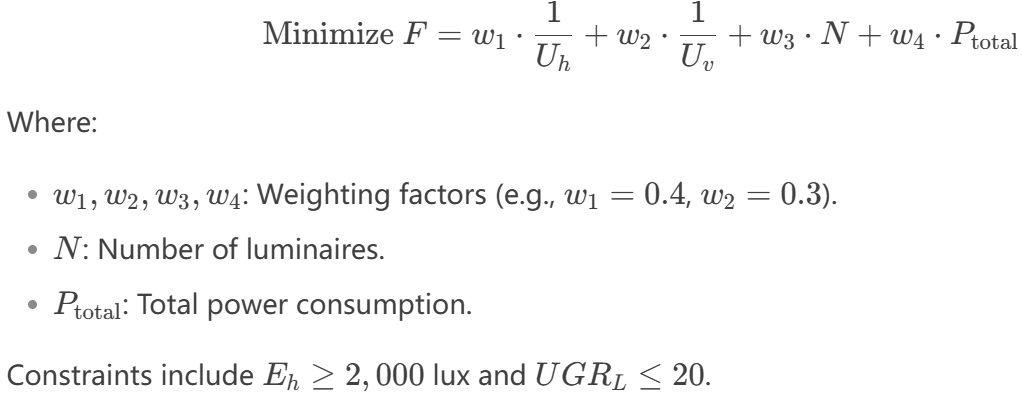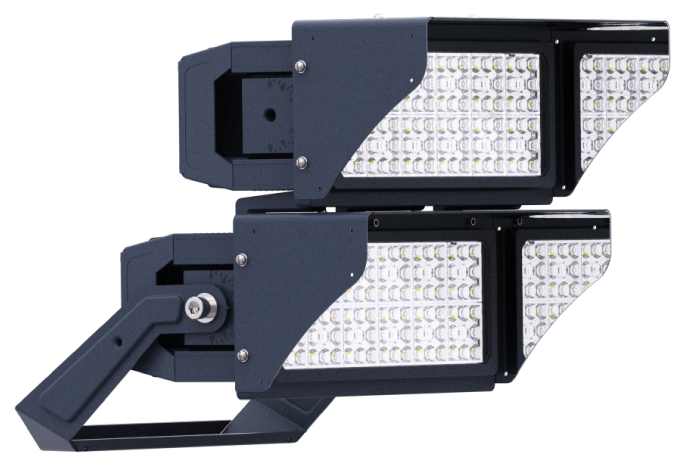What is the formula for football field lighting calculation?

Directory:
1. Core Lighting Parameters
2. Optimization Framework
3. Far-Field Distance Validation
4. Practical Implementation
5. Software Validation
6. Example Calculation
Modern football stadium lighting design relies on multi-objective optimization to balance performance, energy efficiency, and compliance with international standards (e.g., FIFA Quality Pro, EN 12193). The process typically involves the following components:
1. Core Lighting Parameters
The design optimizes four key metrics:
1.1 Horizontal Illuminance (Eh): Average lux on the playing surface.
FIFA Requirement: 2,000–3,500 lux for professional matches.
1.2 Horizontal Uniformity (Uh = Eh,min / Eh,avg): ≥0.7 for televised events.
1.3 Vertical Illuminance (Ev): Critical for depth perception (1,000–1,500 lux at 1.5m height).
1.4 Glare Control (UGRL): Unified Glare Rating ≤20 for player comfort.
2. Optimization Framework
As demonstrated by Xiao et al. (2014), genetic algorithms (GAs) solve the multi-objective problem using a fitness function such as:

3. Far-Field Distance Validation
The "five times rule" determines if a luminaire can be treated as a point source:
![]()
Where Lluminaire is the largest luminaire dimension. If violated, precise ray-tracing (e.g., in AGI32) is required.
4. Practical Implementation
Luminaire Layout: Asymmetric arrangements (e.g., 4-tower systems) minimize shadows.
Dynamic Modes:
Match Mode: 3,500 lux, Uh >0.8.
Training Mode: 750 lux, 30% energy savings.
Event Mode: RGB-tunable LEDs for ceremonies.
5. Software Validation
Tools like DIALux evo or AGI32 automate calculations using:
Photometric Data: IES files from manufacturers.
3D Geometry: Stadium dimensions, mast heights (≥25m), and tilt angles.
Maintenance Factor: Typically 0.8–0.85 (accounting for dirt depreciation).
6. Example Calculation
For a 105m × 68m FIFA-standard pitch:
Luminaires: 200 × 2,000W LED fixtures (120 lm/W efficacy).
Total Luminous Flux:

7. Related Product
